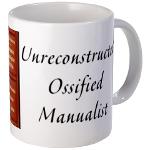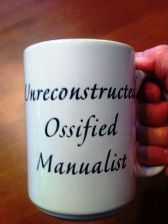 I had a post about Univerae Ecclesiae 28 and how the derogation in that paragraph makes it clear that the provisions of Summorum Pontificum exclude female service at the altar in the Extraordinary Form of the Roman Rite.
I had a post about Univerae Ecclesiae 28 and how the derogation in that paragraph makes it clear that the provisions of Summorum Pontificum exclude female service at the altar in the Extraordinary Form of the Roman Rite.
The reason for this is that in the De defectibus section in the 1962 Missale Romanum there is a clear prohibition of females serving in the absence of a cleric who would serve. Since there is a conflict between the liturgical law of 1962 and subsequent liturgical law after 1983, the 1962 is to be followed.
However, a reader asks:
On reading De defectibus (in answering the question regarding altar girls), I naturally read more and in section IX, it mentions the Eucharistic fast from Midnight.
While this is addressed in Canon Law and elsewhere, it seems that since it’s also addressed in the rubrics in force in 1962. As such, does Universae Ecclesiae now require a eucharistic fast from midnight for the Usus Antiquior?
No.
First, be sure you are reading De defectibus from a 1962 edition of the Missale Romanum and not a previous edition.
Pius XII in 1953 in the Apostolic Constitution Christus Dominus (which Robert Mickens of The Pill might confuse with the Conciliar decree on the office of Bishops) relaxed the fast under certain circumstances. The same Pius XII with the Motu Proprio Sacram Communionem of 1957 changed the law to require only a three hour fast, regardless of when Mass was celebrated.
The 1962MR version of De defectibus IX, which concerns defects of the disposition of the body, reflects Pius XII’s 1957 legislation. The Eucharistic fast of the PRIEST is to be three hours.
Let’s see what the De defectibus really says with my translation.
1. Si sacerdos ante Missan non sit ieiunus per tres saltem horas quoad cibum solidum et potum alcoholicum, et per unam saltem horam quoad potum non alcoholicum, non potest celebrare. Aquae tamen sumptione ieiunum non frangitur.
[If a priest before Mass is not in a state of fasting through at least three hours in regard to solid food and alcoholic drink, and through at least one hour in regard to non-alcoholic drink, he cannot celebrate. However, the fast is not broken by the taking of water.]
2. Infirmi, quamvis non decumbant, potum non alcoholicum, et veras ac proprias medicinas, sive liquidas sive solidas, ante Misse celebrtionem sine temporis limite sumere possunt.
[The sick, even though not confined to bed, can take non-alcoholic drink, and true and proper medicines, either liquid or solid, before the celebration of Mass without the limit of time.]
3. Enixe invitantur sacerdotes, qui id praestare valeant, ut venerandam ac vetustam eucharistici ieiunii formam ante Missam servent.
[Priests who are able to perform it are strongly invited to preserve the venerable and ancient form of the Eucharistic fast before Mass.]
First, this concerns priests, not lay people in the congregation. It concerns the bodily disposition of the priest who says Mass. Also, don’t freak out about the references to “alcoholic drink”. Wine is a staple part of a Roman diet. This is the Roman missal, after all.
Also, the Eucharistic fast is not, per se, a rubric, but sacramental discipline. It pertains even when Holy Communion is distributed outside of Mass. Think of choir members coming after Mass for Communion.
I think the current discipline on the Eucharistic fast in the 1983 CIC of one hour before Communion for Latin Catholics remains.
UE 27 says:
27 – Quoad regulas disciplinares ad celebrationem formae extraordinariae pertinentes, applicetur disciplina ecclesiastica Codicis Iuris Canonici anno 1983 promulgati.
…
With regard to the disciplinary norms pertaining to celebration of the Extraordinary Form, the ecclesiastical discipline of the Code of Canon Law promulgated in 1983 is to be applied.
So, it seems we follow the 1983 Code when it comes to the fast.
Also, other Churches sui iuris have longer periods of Eucharistic fast. These rules apply to members of other Catholic Churches even if they are attend Mass in a Latin Church. Conversely, Latin Church Catholics are not bound to observe, for example, the fast according to the, say, Ukrainian Catholic Church.
The Eucharistic fast seems not to be one of those issues referred to in Universae Ecclesiae 28, but it is covered in UE 27.
A final point. De defectibus deals also with the disposition of the soul of the priest.
When we consider receiving Holy Communion, we who are persons having both soul and body (angels are persons with soul but no body) must be properly disposed in soul and body.
We are properly disposed in soul when we are baptized and in the state of grace (we are not aware of unabsolved mortal sins) and are not under some ecclesiastical censure which prevents us from receiving. We are disposed in body when we obey the Church’s laws concerning the Eucharistic fast (one of the Precepts or Commandments of the Church).
The Church’s law sets a minimum limit for the Eucharistic fast.
You can do more.
People who are ill or have some other good reason are dispensed to some degree or wholly.
One can argue that the Church ought to require more, but the fact is that we have the set of laws we have.
Don’t look down on people who obey the laws they have been given.






 From a reader…
From a reader… From a reader…
From a reader…